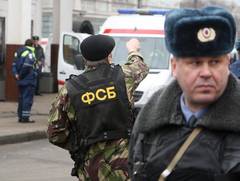(Nationalities Papers) How effective is Russian state television in framing the conflict in Ukraine that began with the Euromaidan protests and what is its impact on Russian Internet users? We carried out a content analysis of Dmitrii Kiselev's “News of the Week” show, which allowed us to identify the two key frames he used to explain the conflict – World War II-era fascism and anti-Americanism. Since Kiselev often reduces these frames to buzzwords, we were able to track the impact of these words on Internet users by examining search query histories on Yandex and Google and by developing quantitative data to complement our qualitative analysis. Our findings show that much of what state media produces is not effective, but that the “fascist” and anti-American frames have had lasting impacts on Russian Internet users. We argue that it does not make sense to speak of competition between a “television party” and an “Internet party” in Russia since state television has a strong impact in setting the agenda for the Internet and society as a whole. Ultimately, the relationship between television and the Internet in Russia is a continual loop, with each affecting the other.
By Christina Cottiero, Katherine Kucharski, Evgenia Olimpieva, and Robert W. Orttung.
War of words: the impact of Russian state television on the Russian Internet (Subscription not required)
Nationalities Papers: The Journal of Nationalism and Ethnicity
March 6, 2015











